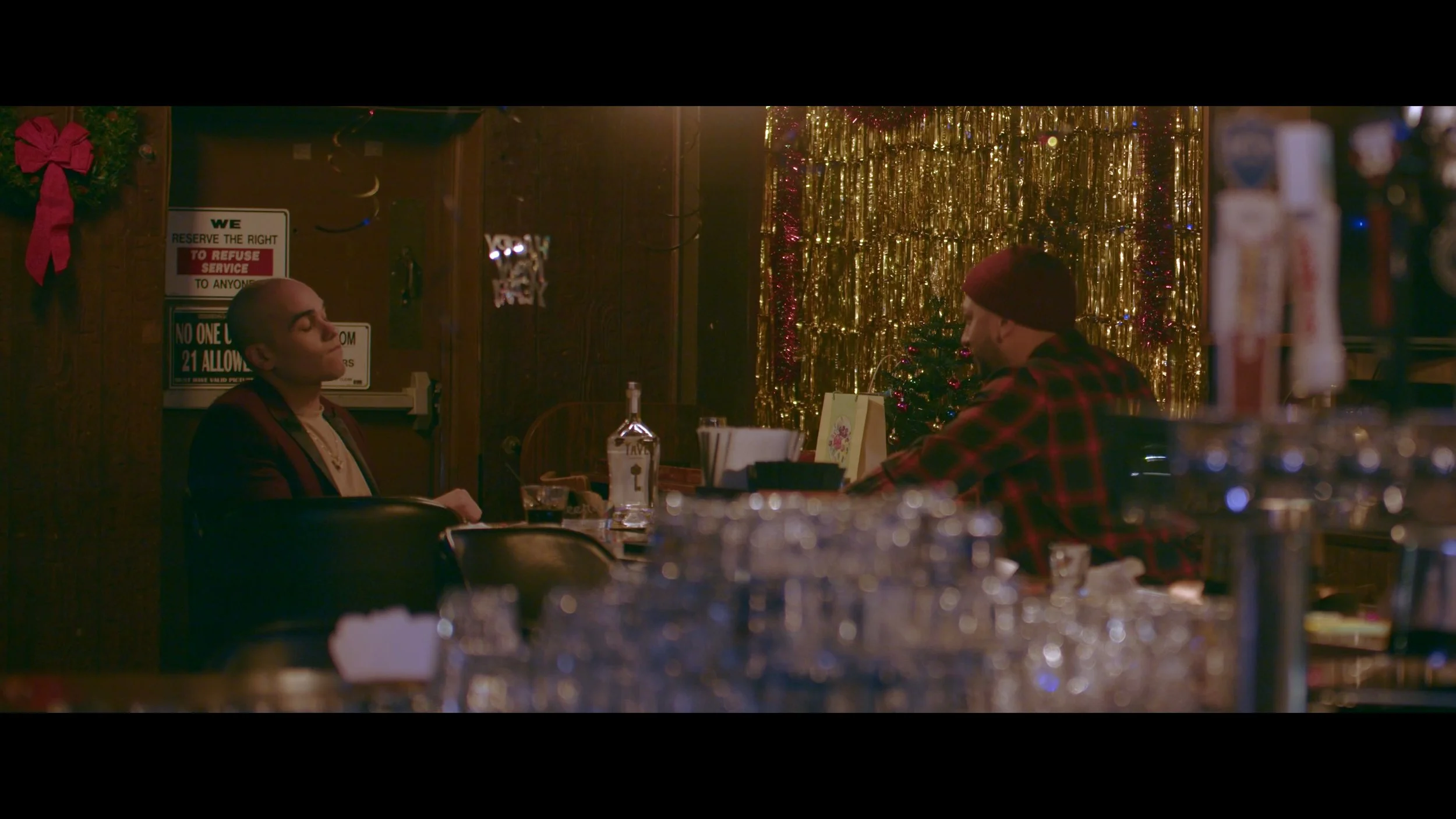Driven by a need to honor his late father, a bartender steps into the world of salsa dancing—uncertain if he can turn it into a business. But as ambition collides with desire, he must learn to keep the fire within from burning out.
SYNOPSIS: On Father’s Day, Gio, an apathetic bartender stuck in the shadow of his overachieving brother, is challenged to honor their late father’s passion for salsa dancing. What starts as a reluctant attempt to prove a point turns into a deeper journey of fantasy, self-doubt, and buried dreams. As Gio begins training under a magnetic salsa instructor—and catches feelings—he must decide whether to let his “Fuego” burn bright, or fade away like the dreams he never chased.
DEVELOPMENT & BACKGROUND: FUEGO began as a short film written, directed, and performed by Edwin FrankO in 2021. At the time, he intended it to be a creative portfolio piece—something that could help him land directing work. After watching In the Heights, he had a clear realization: there were no Puerto Rican or Dominican directors visibly helming major Hollywood films. That moment lit a fire in him. Not knowing where to begin, he picked up a screenwriting book just to learn formatting—unaware that he was also beginning to understand story structure and, more importantly, his own life.
During the short’s development, Edwin began encouraging his brother to start his own business and pushed friends to pursue what made them happy outside of unfulfilling jobs. Most didn’t believe they could. These personal moments became thematic seeds. The Writer’s Journey helped him grasp perspective and encouraged him to look at his own life from the outside in: “What do I look like to them?” That question became the emotional heart of FUEGO—a story meant to inspire the very people he loved.
In September of 2021, Edwin returned to his old bar job after running out of funds during development — unexpectedly brought a new emotional texture to the story. Though he hadn’t planned to go back, regulars welcomed him with enthusiasm, and soon he found himself telling stories behind the bar—much like Forrest Gump on a bench, except with a beer tap instead of a box of chocolates. It was there, scribbling notes on bar pads during slow shifts, that FUEGO evolved from concept to something more grounded and real. Edwin later discovered that Aaron Sorkin once wrote on napkins at a bar job, a connection that reassured him he was still on the “write” path. But the final turning point came while watching a home video of his father, dancing salsa with pure joy. Despite his father’s personal and financial struggles, his love for salsa was untouchable. That was the moment Edwin knew: this wouldn’t just be a personal story—it would be a salsa film, a tribute to the fire that lived in his father, and hopefully, in all of us.
FUEGO was developed using foundational tools drawn from Save the Cat, The Writer’s Journey, and Producer to Producer, which helped structure the narrative, emotional beats, and production strategy. Seeing the results of the short, Edwin doubled down on his craft—reading extensively to build the feature version. This included books such as The Anatomy of Story, The Producer’s Business Handbook, The Movie Business Book, The Biz, and analysis of numerous produced and Oscar-winning screenplays. The process became a self-directed MFA in story and producing—so much so that Edwin enrolled at SDSU Fall 2025 in a formal MFA program to share what he learned with the next generation of filmmakers.
The result was FUEGO, a 119-page feature-length screenplay that went on to receive critical recognition. In 2024, it won Best Screenplay at the International Puerto Rican Heritage Film Festival and was named a finalist at the Oscar-qualifying Urbanworld Film Festival. These honors affirmed the story’s dramatic and comedic strength, its cultural specificity, and its resonance with audiences and curators alike.
Since the short, the project has deepened: expanding the sibling dynamics, enlarging the salsa dance world, and refining the emotional and visual tone. Stylized sequences known as “Fuego Visions” now serve as emotional touchpoints, creating a visual language that externalizes Gio’s internal transformation.




